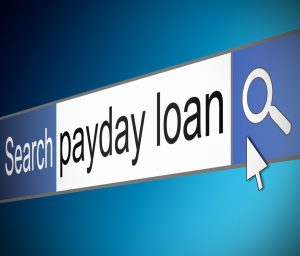While traditional bank loans and licensed moneylenders are the primary sources of credit in Singapore, there’s another option that some borrowers turn to—private lending. These arrangements can offer a faster, more flexible route to financing, particularly for individuals who may not meet the strict requirements of banks. However, navigating this space requires caution and clarity.
To protect yourself, it’s essential to ensure that you’re dealing with a legal money lender rather than an unregulated or illegal operator. A legal money lender in Singapore must be registered and operate within the rules set by the Ministry of Law, ensuring fair interest rates and ethical practices.
This guide explores the landscape of private lender loans in Singapore, including how to identify trustworthy lenders, the potential benefits and drawbacks, and what steps to take to borrow safely and responsibly. Making informed choices is crucial to securing financial help without unnecessary risk.
What Is a Private Lender Loan?
A private lender loan is a type of financing provided by individuals or non-institutional entities, rather than licensed banks or traditional financial institutions. These loans often appeal to borrowers who require quick access to cash or who may not meet the stringent requirements of mainstream lenders.
In Singapore, private lenders commonly assist:
- Individuals with poor or no credit history
- Borrowers facing urgent financial needs
- Self-employed persons or foreigners with limited documents
- Small businesses struggling with cash flow
While private loans can range from personal loans to business, bridging, or collateral-based lending, it’s essential to tread carefully. Always verify the legitimacy of any Singapore money lender before proceeding, as dealing with unregulated lenders can lead to high risks and legal complications. When in doubt, opt for licensed alternatives to ensure transparency and consumer protection under local law.
Private Lenders vs Licensed Moneylenders vs Banks
| Feature | Private Lenders | Licensed Moneylenders | Banks |
|---|---|---|---|
| Regulated by MAS? | No | Yes (under MinLaw) | Yes |
| Interest Rates | Negotiable (can be high) | Capped (up to 4% monthly) | Low (usually below 8% p.a.) |
| Speed | Fast (often within 24 hours) | Fast (1–3 days) | Slower (3–14 days) |
| Credit Score Requirement | Often flexible | Required but negotiable | Strict |
| Legal Recourse | Risk of unregulated activity | Legal and regulated | Fully legal and compliant |
Is It Legal to Borrow from Private Lenders in Singapore?
Here lies the grey area. Private lenders are not licensed under the Ministry of Law (MinLaw), which means they are not subject to the Moneylenders Act. However, borrowing from them is not illegal per se, unless they operate under predatory practices, harass borrowers, or impose unconscionable terms.
Due diligence is crucial. Engaging with a legitimate private lender should involve a formal contract and ideally, the presence of legal counsel. Any signs of harassment, violence, or threatening behaviour could indicate dealings with loan sharks, which are illegal.
Benefits of Getting a Loan from a Private Lender
- Faster Processing
- Some private lenders disburse funds within hours, making them ideal for emergencies.
- Flexible Terms
- Repayment schedules, loan amounts, and interest can often be negotiated.
- Lenient Credit Requirements
- Those with poor or no credit history may still qualify.
- Customised Solutions
- Ideal for borrowers with unique financial situations, including entrepreneurs, foreigners, and freelancers.
- Less Bureaucracy
- Minimal paperwork and fewer hurdles compared to banks.
Risks and Drawbacks
- Higher Interest Rates
- Expect to pay a premium. Rates may range from 12% to over 60% p.a. depending on the agreement.
- Lack of Regulation
- Without MinLaw oversight, you are more vulnerable to exploitative clauses.
- Possibility of Harassment
- Some unregulated lenders may resort to intimidation tactics in the event of delayed payment.
- Legal Uncertainty
- In case of a dispute, legal recourse can be complicated and costly.
- Scams and Fraud
- Unscrupulous individuals may pose as lenders to steal personal data or charge upfront “processing fees” fraudulently.
How To Find a Legitimate Private Lender in Singapore
- Personal Referrals
- Ask trusted professionals, lawyers, or business owners who may have connections with reputable lenders.
- Online Platforms
- While caution is essential, there are private lending platforms that match borrowers with investors.
- Professional Brokers
- Financial advisors or loan brokers may introduce you to vetted private lenders for a fee.
- Background Checks
- Always verify the lender’s identity, past track record, and ask for references.
- Legal Contracts
- Never proceed without a written agreement, preferably reviewed by a lawyer.
Steps to Getting a Private Lender Loan
Step 1: Evaluate Your Financial Needs
Be clear about:
- How much you need
- Why you need it
- How soon you can repay
This helps avoid overborrowing and ensures you choose the right type of loan.
Step 2: Compare Your Options
Even if you’ve been rejected by banks, consider licensed moneylenders before resorting to private lenders, as they offer legal protection.
Compare:
- Interest rates
- Fees
- Repayment flexibility
- Penalties for late payments
Step 3: Perform Background Checks
Red flags include:
- No physical office or verified identity
- Asking for upfront payments
- Vague or verbal-only agreements
- Excessive interest or abusive language
Verify identities through public records or social media, and request credentials or past client testimonials.
Step 4: Negotiate Terms Transparently
Discuss:
- Interest rates (flat or reducing)
- Loan tenure
- Early repayment options
- Collateral (if applicable)
Don’t accept verbal agreements—everything must be documented.
Step 5: Sign a Legal Contract
Ensure the contract includes:
- Loan amount
- Interest rate
- Repayment schedule
- Penalties
- Dispute resolution method
Consult a lawyer if you’re unfamiliar with financial contracts.
Step 6: Make Timely Repayments
Maintain discipline to avoid legal trouble or harassment. If you face difficulties, communicate proactively with the lender and seek to restructure the loan.
Red Flags: How to Avoid Loan Sharks Disguised as Private Lenders
Private lending can sometimes be a veil for illegal moneylending. Watch out for:
- Offers that are “too good to be true”
- Unsolicited messages via SMS or WhatsApp
- Requests for Singpass login credentials
- Pressure to act urgently
- Hidden fees and confusing terms
If you suspect you’re dealing with a loan shark, report it immediately to the Police (999) or the Ministry of Law at 1800-2255-529.
Alternatives to Private Lending
If you’re considering private lenders due to urgency or poor credit, consider these options first:
- Credit Counselling Singapore (CCS) – Offers debt management programmes.
- Credit Co-Operatives – Community-based lending institutions with less stringent requirements.
- Pawnshops – Provide quick cash with collateral, with no credit checks.
- Peer-to-Peer Lending Platforms – Regulated and often cheaper than private lenders.
- Government Assistance Schemes – For housing, medical, or education needs.
Conclusion

Private lender loans in Singapore can serve as a financial lifeline for those who find themselves excluded from mainstream lending channels. However, the lack of regulation and potential risks demand caution, diligence, and a clear understanding of your obligations as a borrower.
Always consider licensed alternatives first, weigh the risks, and ensure you’re not stepping into the domain of illegal moneylending. When done right, borrowing from a legitimate private lender can offer short-term relief, but only if managed responsibly and transparently.
If ever in doubt, seek independent legal or financial advice—because when it comes to borrowing, peace of mind is just as valuable as the funds themselves.




